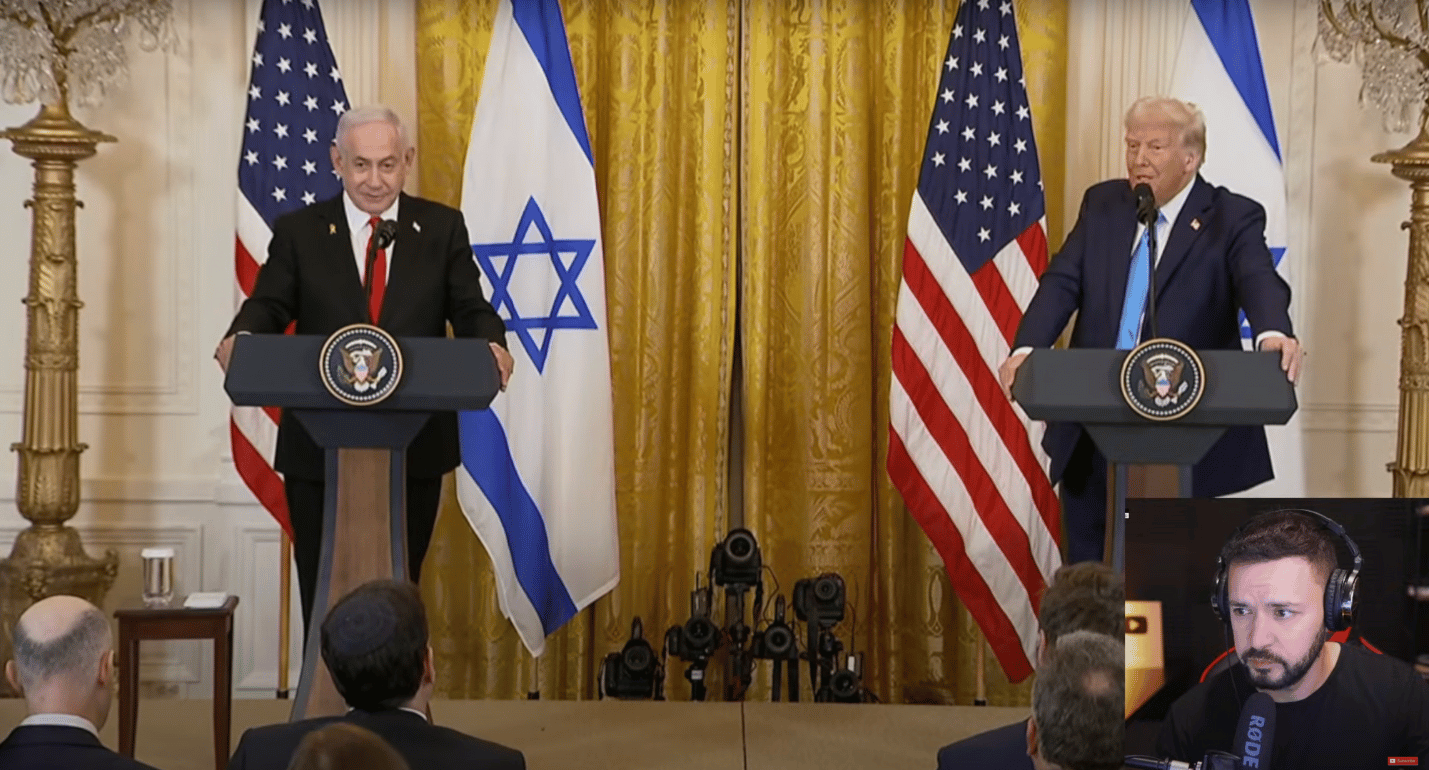In a dramatic escalation of rhetoric during Israeli Prime Minister Benjamin Netanyahu’s visit to Washington, former President Donald Trump revealed he has left explicit instructions for Iran’s “total obliteration” should he be assassinated, while signing new executive orders aimed at preventing Iran from acquiring nuclear weapons.
Maximum Pressure Returns
During a signing ceremony at the White House, Trump authorized new measures directing Treasury Secretary Scott Bessent and Secretary of State Marco Rubio to tighten sanctions on Iran’s oil sales and enforce violations of existing restrictions. The goal, according to administration officials, is to reduce Iran’s exports to zero.
“Iran cannot have a nuclear weapon. With me, it’s very simple,” Trump declared, though he expressed reluctance about signing the order. “Hopefully we’re not going to have to use it very much. We will see whether or not we can arrange or work out a deal with Iran.”
Assassination Deterrence
In perhaps his most forceful comments, Trump revealed contingency plans regarding potential Iranian assassination attempts. “I’ve left instructions – if they do it, they get obliterated. There won’t be anything left,” Trump stated. He criticized the previous administration for not taking a similarly strong stance, suggesting that “Biden should have said that, but he never did.”
Netanyahu Talks
The warnings came as Israeli Prime Minister Benjamin Netanyahu visited the White House for discussions on regional security and the ongoing Israel-Hamas conflict. During their joint appearance, Trump dismissed suggestions that Iran was weakened by recent events.
“They’re not weak. They’re very strong right now,” Trump assessed. “We’re not going to allow them to have nuclear weapons.”
Gaza’s Future
The leaders also discussed the future of Gaza, with Trump proposing a controversial vision of relocating Palestinians to other countries in the region. “I envision a world where people living there will make it into an international, unbelievable place,” Trump said, suggesting countries like Jordan and Egypt could potentially host displaced Palestinians.
Netanyahu, while not directly addressing the relocation proposal, focused on three primary goals: securing the release of all hostages, destroying Hamas’s military capabilities, and ensuring Gaza never poses a threat to Israel again.
Hostage Negotiations
Both leaders addressed the ongoing efforts to secure the release of remaining hostages held by Hamas. Netanyahu credited Trump with adding “great force and powerful leadership” to the negotiation efforts, while Trump expressed optimism about securing additional releases while acknowledging the complexity of the situation.
“We’ve done, I think, a very masterful job,” Trump stated. “We weren’t helped very much by the Biden Administration, I can tell you that, but we’ve gotten quite a few hostages out, we’re going to get more out.”
Regional Implications
The meeting comes at a crucial moment in Middle East diplomacy, with the administration pursuing multiple objectives:
- Preventing Iran from acquiring nuclear weapons
- Securing the release of remaining hostages from Hamas
- Establishing a long-term solution for Gaza
- Potentially brokering broader regional peace agreements
Looking Ahead
The administration’s tough stance on Iran marks a significant shift from current U.S. policy. Under Biden, America had resisted bipartisan pressure to increase economic sanctions on Iran, including those targeting oil exports. The new measures signal a return to the “maximum pressure” campaign characteristic of Trump’s first term.
Trump’s explicit deterrence threat regarding assassination attempts also represents an unprecedented public warning to Tehran, though experts note it may complicate diplomatic efforts to reduce regional tensions.
As these developments unfold, the international community watches closely to see how Iran will respond to both the new sanctions and Trump’s stark warnings, while regional allies and adversaries alike adjust to what appears to be a dramatically different approach to Middle East policy.
